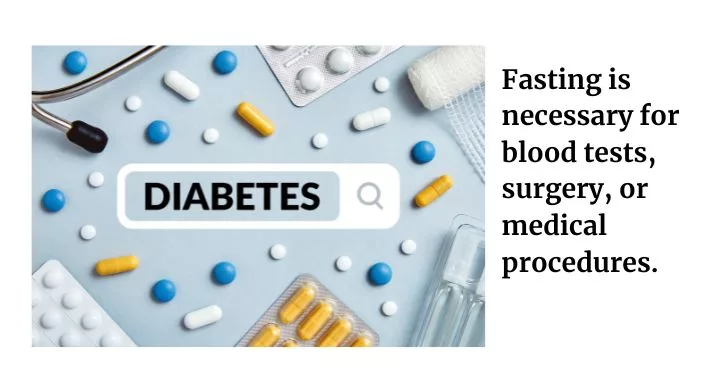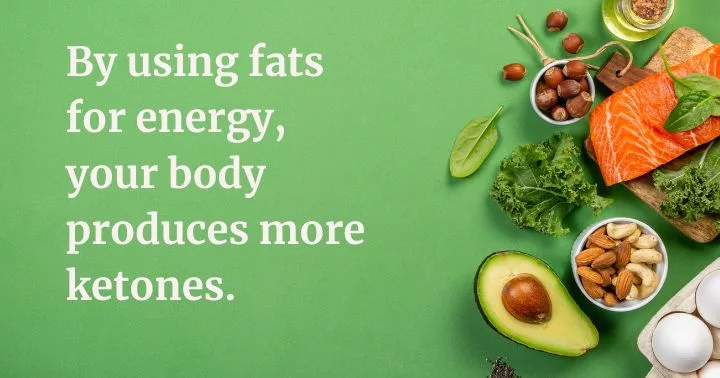Fasting, per se, is healthy. But is it a bad idea to skip meals? Is fasting for weight loss even healthy? The short answer is, “Yes.” It is healthy.
In fact, several studies showed that using it to lose weight could offer many benefits. For a short time, it can produce ketosis. This is a process that occurs when your body does not have sufficient glucose for energy.
As a result, it breaks down stored fats.
The process of breaking down fats causes an increase in ketone in the body.
Because you are consuming fewer calories, it can indeed lead to weight loss.

1.) Is Fasting for Weight Loss Healthy If You Are Diabetic?
Often, fasting is necessary for blood tests, surgery, or medical procedures. However, if you are fasting to lose weight because you are diabetic, there are things you need to consider.
You must choose a plan that is tailored to your lifestyle, nutritional needs, and symptoms. Remember that there are various ways to do intermittent fasting.
You can skip breakfast or dinner. Or you may restrict calories on some days of the week while you eat normally on other days.
But whatever plan you pick, make sure that it fits your lifestyle and your nutrition needs.
Most of all, you must hydrate yourself. To remind you to drink water, make sure to use this water bottle.
Will it help boost your metabolism, thereby, helping you lose weight? If you are diabetic and overweight, losing weight can make a huge difference to your blood sugar.
In a small study, researchers found that IF could help in lowering insulin resistance in adults with type 2 diabetes. Insulin is a required hormone to get glucose out of the bloodstream.
But if you have type 2 diabetes, you are resistant to this hormone. As a result, you have higher blood sugar levels.
As you practice intermittent fasting, your insulin sensitivity may improve. It might also reduce your fasting glute levels, post-meal blood sugar levels, and weight.
2.) Will It Not Harm Blood Sugar Control
Skipping meals can lead to poorer blood glucose control.
If you skip meals, you may have poor diet choices. And you know that these choices can have the opposite effect on your blood sugar.
For that reason, you need to be more disciplined and have self-control. Mindful eating can help stop you from reaching for a crab-heavy pastry after not eating for hours.
3.) Can You Lose Fat Fast by Fasting?
You can lose fat fast by fasting. But only if you don’t reach for a carb-laden meal to break your fast.
It is true that many advocates of IF said that you can eat whatever you want when you follow any IF plan.
But the truth is that if you continue eating junk foods or carb-heavy meals, you still will not lose weight or burn fats.
When you fast, your body produces ketosis.
This is a process that occurs when your body’s glucose reserve is depleted. To ensure that you have energy, your body breaks down stored fat.
By using fats for energy, your body produces more ketones.
The longer you fast, the more stored fats are being used for energy. This can definitely lead to significant weight loss.
However, you need to ensure that when it is time to break your fast, you must only eat moderate-protein, high-healthy fats, and low-carb meals. That’s why many advocates would recommend opting for keto meals.
These meals include low-carb food, high protein, and high healthy fats. You should also avoid overeating during your eating windows. Even if you are eating keto-friendly foods, you still will not lose weight.
Always remember that eating fewer calories than you burn is the basis for losing weight. If you can’t control your craving, it is perhaps time to analyze what you are eating.
High-carb foods will make you hungry after an hour of eating. But foods that are high in protein and healthy fats will make you feel full for hours. This is why you can fast for longer than 12 hours if you follow this trick.
4.) How Long Should You Fast for Weight Loss?

It depends on your metabolism. But the longer you fast, the faster it is for you to achieve your weight loss goal.
The reason for this is that you are allowing your body to use more of your stored fats to give you energy.
If you are just starting out, you can fast for 12 hours a day. This is an ideal option for beginners because the fasting window is small.
After adapting to IF, you may wish to start fasting for 16 hours. It gives you 8 hours of eating window.
It is up to you to choose when you want to break your fast and when to start fasting. For instance, you can break your fast at noon and your last meal is at 8 pm.
You may also fast for two days a week. During the two fasting days, you can consume 600 calories. Then, on non-fasting days, you can eat regular meals.
One Meal a Day (OMAD) is also an ideal IF if you have tried 12-hour fasting or 16-hour fasting without significant results.
OMAD can definitely help in eating fewer calories.
Then again, it is still easy to overeat. For instance, if you eat only one meal a day but you choose to consume a pound of cheeseburger and other junk foods, then you are still eating more than you burn.
Hence, it is ideal that you plan your meals.
5.) What Happens to Your Body on a 7-day Fast?
A 7-day fast is an extreme form of IF. If you choose to fast for 7 days, it means that you don’t eat anything. But you can drink water.
It has several positive effects. You can definitely lose weight. You will also lose a lot of body fat. Your blood sugar levels will also reduce.
But is it safe?
It is safe for some people. But not it is not recommended for some individuals.
It can result in adverse metabolic changes. For instance, you may lose lean muscle mass. You may also develop hyperuricemia, hyponatremia, and magnesium levels, among others.
You will also experience headaches, vomiting, constipation, nausea, and lightheadedness.
If you wish to try it, you should talk to your doctor beforehand. You may also need to seek medical guidance before you embark on this journey.
6.) How Long Is It Safe to Fast for?
It really depends on your body. During a fast, you will not feel unwell. But you will definitely feel a little tired and irritable.
Now, if you start to feel faint or ill, it may be best that you eat a little.
You should stop fasting and seek medical intervention if you feel weak and tired which prevents you from performing your daily tasks.
It is important to note that intermittent fasting is safe if you do it properly. You should first test out the shorter plan before you embark on a longer fasting window.
Losing Weight with IF
Is fasting for weight loss healthy? It is healthy only if you do it correctly. Make sure that you eat enough protein, opt for whole foods, avoid eating sugary foods, and make sure to exercise.

Speak Now ... Or Forever Hold Your Peace